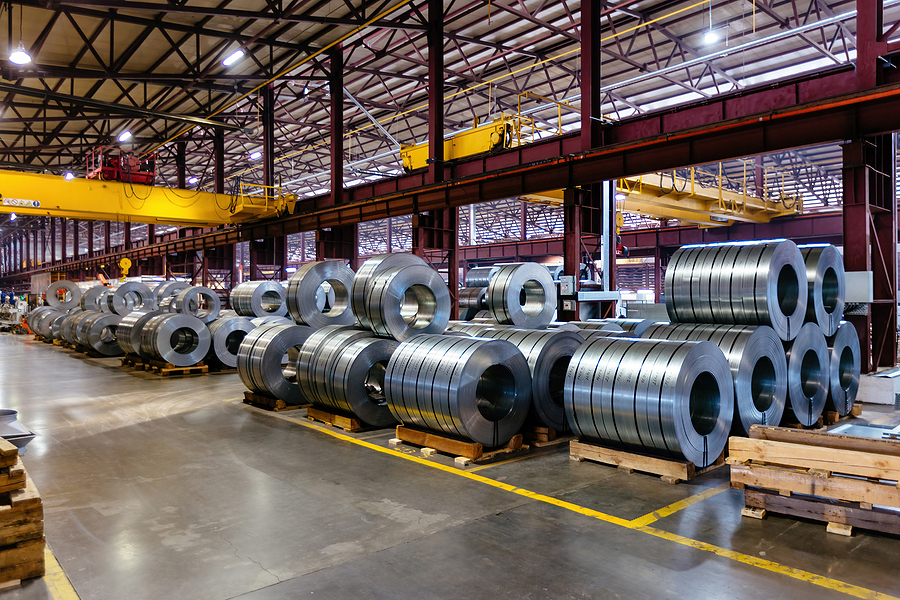
AISI, Washington, D.C.
The American Iron and Steel Institute (AISI), based in Washington, D.C., has released figures showing that the United States’ production of steel had a slight increase of 1.2 percent during the week ending Feb. 25, despite an unsteady beginning to 2023.
According to AISI, the production of raw steel within the United States totaled 1.674 million tons in the prior week, which is a scant rise of 1.2 percent from the week before. However, compared to the same timeframe last year, this number has decreased by 4.6 percent.
So far in 2023, the United States has manufactured a total of 13.1 million tons of steel, at an average capability utilization rate of 73.2 percent. Compared to last year’s figures of over 13.95 million tons and an average 80.3 percent capability utilization rate, this demonstrates a decline of 6.1 percent.
Disaster Strikes in Turkey
The prospects for the U.S. ferrous scrap industry are likely to be positive, with domestic output expected to climb. Turkish mills are predicted to step up global purchases as they begin the process of reconstruction after destructive earthquakes hit the southeastern area of the country.
On February 20th, two earthquakes measuring 6.4 and 5.8 on the Richter scale shook the same region of Turkey that had previously been hit two weeks earlier, with tremors registering as 7.8 and 7.5 magnitude, according to the BBC report.
The force of the Feb. 20 earthquakes may have been less intense, yet the BBC reports that “rescuers are once again searching for people trapped under rubble.” In collation, the earlier quake on Feb. 6 caused an immense amount of wreckage with 44,000 deaths and “tens of thousands” left without homes.
A Positive Outlook, Despite Tragedy
In the wake of the catastrophe, Turkish President Recep Erdoğan has pledged a speedy and comprehensive rebuilding plan, ahead of an upcoming election. In order to fulfill this promise, various departments of the government have been rapidly organizing search and rescue operations, recovery efforts, and clean-up processes.
Bloomberg TV disclosed that according to SteelOrbis, an India-based website, Turkey’s Steel Producers Association (TCUD) are prepared to offer 4 million tons of steel rebar in order to help reconstruct southeastern Turkey in a span of three to four months.
During an interview, Veysel Yayan from TCUD, stated that the steel production capacity of Turkey stands at 24 million metric tons for rebar, and 18.5 million metric tons for flat steel annually.
Nathan Fruchter of New York-based Idoru Trading, highlighted the potential for Turkey’s restoration efforts to create ripple effects in commodities markets following the natural disaster.
With the major rebuilding drive underway, and domestic output expected to rise, the combination of both factors could potentially result in ferrous scrap prices surging.
Scrap Yards Scramble
This year, United States’ scrap yards have seen a decline in the amount of material coming through their gates, leading many to consider raising prices at the scale house as an incentive to bring in more scrap.
As of the February 27th, Davis Index, a metals information and pricing service, reported that Turkish mills had raised prices for U.S. sourced heavy melting scrap (HMS) to over $456 per metric ton. This is a significant rise from the $415 per metric ton being offered in mid-February, representing an approximate 10 percent jump.
Additional data from Davis Index indicates that Chicago area mills have shown a substantial increase in payment for HMS. As of February 7th, 2021, Chicago plants have paid $353 per gross ton for heavy melting scrap, a 27 percent upturn from December 9th, 2022 when it was just $278 per ton.
A Change is Anticipated
Not long after competitor Nucor (NYSE:NUE) raised its flat rolled steel prices by $100 per net ton and set a minimum $1,000/st target price for hot rolled coil products, Cleveland-Cliffs (CLF), followed suit. According to Argus, Nucor has boosted prices by a total of $360 per net ton over the course of six separate hikes since late last November.
Since its founding in 1847, Ohio-based company, Cleveland-Cliffs has established itself as the largest flat-rolled steel producer and iron ore pellet manufacturer in North America. From mined raw materials to direct reduced iron and ferrous scrap, the firm covers all stages of production up to primary steelmaking and downstream finishing. This includes stamping, tooling, and tubing for complete vertical integration.
The ferrous market appears to be undergoing a transformation, as evidenced by Cleveland-Cliffs’ announcement on Monday. The company declared that it would be raising its “spot market base prices” of all carbon hot-rolled, cold-rolled, and coated steels by at least $100 per net ton and setting a “minimum base price of $1,000/st for hot rolled steel” with immediate effect. This marks the second time in just six days that the company has increased product pricing.
Price Increases Impact Global Markets
As the leading provider of flat-rolled steel products in North America, Cleveland-Cliffs is a major supplier to both the automotive and several other industries. With over 27,000 employees working across its US and Canadian locations, this corporate giant has become an integral part of the economy.
Should buyers agree to it, this most recent price bump could drive hot-rolled coil (HRC) prices up to $1,000 per net ton, a level not seen since June of last year. Cleveland-Cliffs’ expenditures are still too high, but “improvements are being made”. When combined with increased volumes, this will likely result in an uptick of EBITDA and EPS figures.
